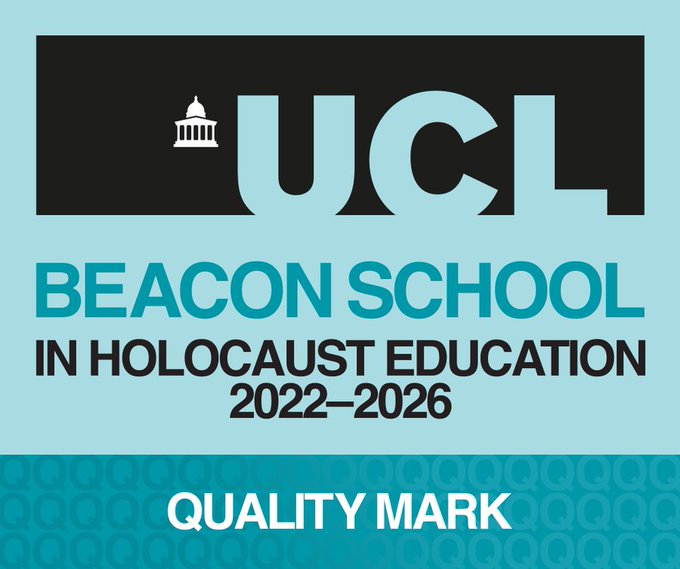Special Educational Needs and Disability (SEND) and Inclusion
Introduction
We are a dedicated team ensuring that the right help is offered to pupils at the right time. We believe that every pupil is entitled to the best possible education and that every child truly matters.
We aim to:
Identify pupils who require support for education, behavioural or emotional reasons.
Decide the type of support that is appropriate for each individual.
Fulfil the requirements of pupils who have a statement of Special Educational Needs.
Provide a supportive environment so that each pupil feels they are valued, thus enhancing their self-worth as a pupil of St Michael’s.
Support and enable each pupil to become a confident and independent learner, in order that they can make the most of the opportunities that St Michael’s has to offer.
St Michael’s Catholic College SEND information report 2023
What we provide:
Additional Support
The Head of SEN and Inclusion liaises with subject teachers and Heads of Department to ensure that provision is made for those pupils with an additional educational need and co-ordinates the work of outside agencies to meet the needs of pupils with a need and those who have Statements of Special Educational Need. Pupils have a wide variety of physical and emotional needs.
Reading Club
To speed the progress of pupils who have reading difficulties the SEN–Team supervises reading sessions regularly throughout the week for pupils at Key Stage 3.
Homework and computer club
Homework (3.30-4.30pm) and the computer club (8.00-8.30pm) are supervised by a Teaching Assistant from Monday to Thursday.
Special Arrangements for Examinations
Provision for examinations may include extra time, a reader or a scribe or a laptop computer.
Parent Drop In
We understand that the needs of your child are very individual. We appreciate that you, the parent or carer, will have a valuable understanding of your child’s needs. For this reason, we welcome your involvement in your child’s education and will listen carefully to what you have to say. The SEND and Inclusion department provides a weekly Parent Drop In held every Thursday at 10 a.m.
Alternative Provision Base
The APB has been established to promote the inclusion of young people who are experiencing social, emotional and /or behavioural difficulties which cause disruption to their learning. This provision is very much viewed as a preventative and not punitive measure and provides students with bespoke support and interventions so that they can successfully reintegrate back into mainstream education at a pace that best suits individual needs.
Counselling
Pupils can arrange sessions with our part-time counsellor to support their emotional well-being.
The school nurse:
Draws up health care plans for pupils with complex’/chronic medical conditions
Provides First Aid
Keeps up to date clinical records
Liaises with external agencies on matters of health
Delivers Health Education programmes
Southwark local offer: https://localoffer.southwark.gov.uk/
Targeted Additional Provision: ‘TAP’
TAP is a highly personalised intervention focused around maximising academic potential & inclusion for vulnerable & disadvantaged students. The TAP Co-ordinator utilises Cognitive Behavioural Techniques & Solution-Focused Approaches to teaching and learning.
Interagency working
We are committed to inter-agency working. Our approach advocates the Child Around the Team model placing the child at the centre of our interventions and work.
To contact Mrs Freegard, SENCO, please address queries for her attention at the address of: contact@stmichaelscollege.org.uk
| Inclusion and SEND Team: | |
| Assistant Principal with responsibility for SEN and Inclusion | Mrs R. Keane (Maternity leave)
Miss E. Roberts |
| Head of SEN and Inclusion and Deputy Safeguarding Lead | Mrs D. Freegard |
| SEND Lead Teacher
EAL Support |
Ms S. Karbownik
Ms M. Burke |
| Targeted Additional Provision Co-ordinator | Mrs J. Chilton-Higgins |
| Teaching Assistants/Learning Mentors | Mrs A. Hurley
Mrs C. Thornber
|
| School and Paediatric Nurse | Ms L. Chabaud |
| Education Welfare and Attendance Officer | Mrs D. Carr |
| School Counsellor | Mrs L. Murtagh |
“All teachers are teachers of SEND” (SEND Code of Practice 2014)
The code details that SEND (Special Educational Needs and Disabilities) students should:
- Benefit from Quality First Teaching – high quality inclusive and adaptive teaching.
- Benefit from an inclusive broad and balanced curriculum.
- Play a full and active part in school life.
What is SEND?
SEND may be indicated within students who:
- fail to make adequate progress, despite having had access to adaptive teaching as part of quality first teaching
- are working at levels significantly below age expectations, particularly in literacy or numeracy.
- present with persistent emotional and/or behavioural difficulties, which have not been managed by appropriate strategies employed by classroom teachers and pastoral staff
- have sensory or physical impairments that result in little progress despite the provision of appropriate aids or equipment.
- Demonstrate poor communication or interaction, requiring specific interactions and adaptations to access learning.
How are students with SEND identified?
- Identification of SEND students may take place at primary school or secondary school.
- Identification requires diagnosis from professionals e.g. educational psychologists
Criteria for inclusion on the SEND list at St Michael’s
– Students with an EHCP (for cognition and learning or health reasons)
– Students with a specific SEN diagnosis whose needs are met through Quality First Teaching plus other support/intervention
– Students being assessed and awaiting a SEN diagnosis
– Any student who is fully dependent on TA support, even if they have no SEN diagnosis
– Students with an SEMH need which is specifically ADHD or ADD or has a significant impact on their ability to engage/make progress academically.
– Students who work with particular external professionals e.g. Speech and Language Therapist, Educational Psychologist
How do I know which of the students I teach have been diagnosed with SEND?
- The SEND Pupil list is in the SEND section of the staff portal. It details all SEND students within each year group. All SEND profiles can be accessed on the staff portal. In addition you have been directly provided with relevant SEND details of your students at the start of the academic year on the class prior attainment sheets.
How can I know the needs of, and adapt my lessons for, the SEND students in my classes?
- Each SEND student has an individual student profile. These are documents setting out a student’s needs, strategies to accommodate these in the classroom, additional support, parent/carer perspective and students’ perspective
- Student profiles can be accessed on the staff portal using the link in the SEND section.
https://sites.google.com/stmichaelscollege.org.uk/st-michaels-staff-portal/send/sen-an-listsprofiles
Where can I find further guidance/advice on supporting different types of SEND and making effective use of a teaching assistant in lessons?
- Guidance/advice can be found in the student’s SEND profile accessed via the staff portal- see link above.
- Speak to Debbie Freegard or Sylwia Karbownik.
What should I do if I think that one of my pupils may have undiagnosed SEND needs?
- Should you consider that one of your students has unidentified SEND needs please complete and SEN referral form which is available on the college website and email it to the SENDCO, Debbie Freegard and copy in Emma Roberts SLT SEN Lead as soon as possible:
- Debbie will then arrange to meet with you, to understand your concerns and implement any follow up required.
What external agencies are used by the school to support students?
- External Educational Psychologist
- Speech and Language Therapist
- CAMHS Mental Health Support Team – Southwark
- SEN Team at Southwark local Authority
Students with Additional Needs (AEN)
Criteria for inclusion on the college Additional Needs list:
– Students with EAL
– Students with medical needs but no EHCP
– Students with a SEN diagnosis of MLD who can work independently from TA
– Students with a SEN diagnosis of MLD whose needs are met through Quality First Teaching and don’t therefore require specific or additional support to reach age-related expectations
– Students with SEMH needs which is not ADHD or ADD (such as anxiety/depression/bereavement)
– Students who work with CAMHS/mental health professionals outside of college
– Students with a combination of low reading scores and low baseline scores in year 7
– Students entitled to Access Arrangements
– Students with behavioural issues
– Looked-after children
This list of students with additional needs can be found on the SEN/AEN profile page in the SEND section of the staff portal. It will be monitored by the Inclusion Department, LOLs, Form Tutors and Class Teachers. If at any point, there is concern that a student may need to be moved over to the SEN list, please contact SENDCo Debbie Freegard and she may ask you to fill out an SEN referral form.
EAL Information
Your prior attainment class lists detail which students are identified in the college as EAL. The overwhelming majority of students at St Michael’s who are classified as EAL would be classed as Competent/Consolidating or Fluent and therefore no further action is required.
The teachers of students who require support because they are early acquisition developing competence will be notified of specific strategies and support students will need e.g., use of bilingual dictionary, reading club support, student native speaker mentor etc. On the rare occasions where we have a student who is completely new to English they will have an adapted curriculum and withdrawal for intensive English lessons until they can successfully access the full curriculum. Maeve Burke currently supports the SEN department in this regard.
DfE English Proficiency Codes:
A: New to English: Pupils are complete beginners in English.
B: Early Acquisition: Pupils can follow simple instructions.
C: Developing Competence: Pupils show some knowledge of social and spoken English and can write in simple sentences.
D:Competent/Consolidating: Pupils are working at average ability in comparison with their monolingual peers.
E: Fluent: Pupils who operate across the curriculum to a level of competence equivalent to that of a pupil who uses English as his/her first language.
















